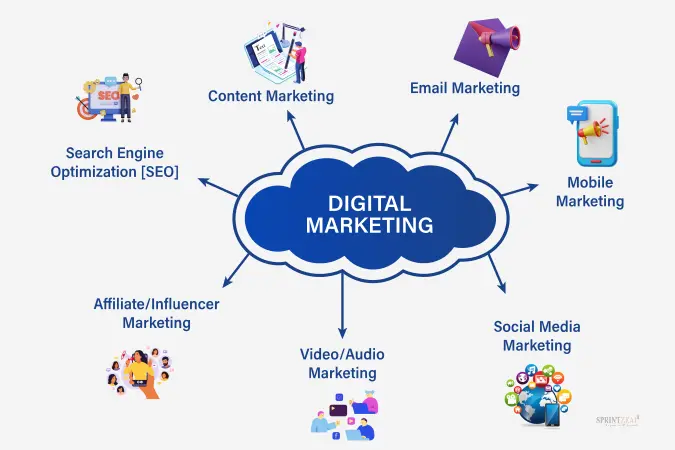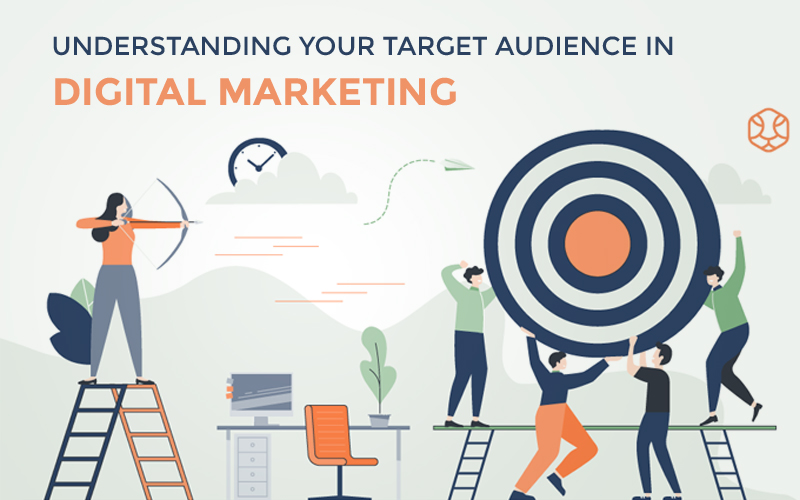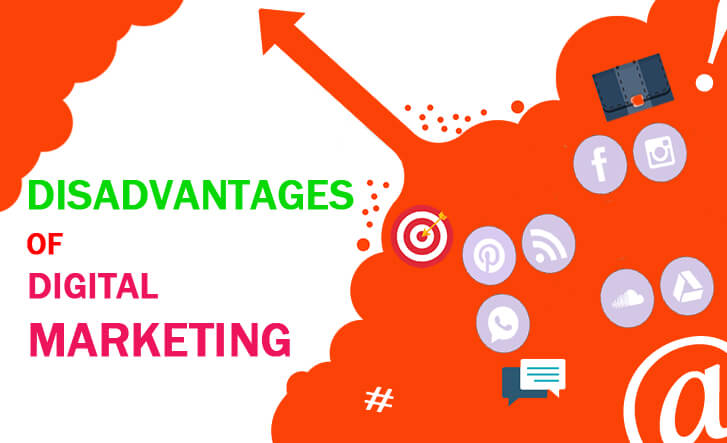What Are the Advantages and Disadvantages of Digital Marketing?
In today’s world, digital marketing has become an essential component for businesses of all sizes. From social media campaigns to email newsletters and search engine optimization, the digital landscape offers numerous ways to connect with potential customers. But while digital marketing provides powerful tools for brand growth, it also comes with its own set of challenges. In this article, we’ll explore the advantages and disadvantages of digital marketing so you can make informed decisions about how to maximize its benefits while navigating potential drawbacks.

1. What is Digital Marketing?
Before diving into the pros and cons, it’s important to understand what digital marketing encompasses. Digital marketing refers to all online efforts that promote products, services, or brands. It includes tactics like social media marketing, email marketing, content marketing, SEO (Search Engine Optimization), PPC (Pay-Per-Click) advertising, and more. By leveraging the internet and electronic devices, businesses can reach and engage audiences in ways that were previously impossible with traditional marketing methods.

2. Advantage #1: Global Reach
One of the biggest advantages of digital marketing is its global reach. Unlike traditional marketing methods, digital marketing allows businesses to connect with audiences around the world without needing a physical presence in each location. This is particularly beneficial for businesses looking to expand internationally or target specific demographics that may not be easily accessible through local marketing efforts.
3. Advantage #2: Cost-Effectiveness
For many businesses, especially smaller ones, cost-effectiveness is a crucial factor in choosing marketing methods. Digital marketing can often be much cheaper than traditional advertising. For instance, running a PPC campaign or posting on social media can yield a high ROI (Return on Investment) without the significant expenses associated with TV or print ads. Additionally, many online marketing tools, like social media platforms or email software, offer affordable pricing or even free options.
4. Advantage #3: Measurable Results
With digital marketing, businesses can track their performance in real-time. Tools like Google Analytics, Facebook Insights, and SEO software allow marketers to measure metrics such as website traffic, engagement rates, and conversion rates. This ability to measure results enables businesses to adjust their strategies on the fly, improving effectiveness and maximizing ROI.

5. Advantage #4: Personalization and Targeting
Digital marketing allows businesses to target their audiences with precision. Through data analysis, marketers can create personalized messages that resonate with specific segments of their audience. With tools like cookies and demographic data, businesses can deliver targeted ads to users based on their age, location, interests, or browsing behavior. This targeted approach helps increase engagement and conversion rates by addressing the unique needs and preferences of each audience segment.
6. Advantage #5: Enhanced Engagement
The interactive nature of digital marketing provides opportunities for enhanced engagement. Through social media platforms, businesses can engage with customers directly, receiving instant feedback and building relationships in real-time. Polls, comments, and shares allow customers to interact with brands, fostering a sense of community and loyalty. Additionally, engaging content, like videos, blogs, and infographics, encourages users to spend more time with the brand, increasing the likelihood of conversion.
7. Disadvantage #1: High Competition
While digital marketing allows businesses to reach a broad audience, it also increases competition. The online space is crowded with brands vying for attention, making it challenging to stand out. This competition often leads to higher costs for paid ads as businesses bid against each other for prime positions on search engines or social media platforms. For smaller businesses, this level of competition can be difficult to overcome without a strong digital marketing strategy and budget.
8. Disadvantage #2: Constantly Changing Algorithms
One of the biggest challenges in digital marketing is the ever-changing algorithms used by search engines and social media platforms. Google, Facebook, and Instagram frequently update their algorithms, affecting how content is displayed and who sees it. These changes require marketers to stay up-to-date with the latest trends and adjust their strategies accordingly, which can be time-consuming and resource-intensive.

9. Disadvantage #3: Privacy Concerns
As digital marketing relies heavily on user data for targeting, privacy concerns have become a significant issue. Users are increasingly aware of how their information is collected and used, leading to stricter data protection regulations like GDPR in Europe and CCPA in California. These regulations require businesses to follow specific guidelines when collecting, storing, and using customer data, adding an extra layer of responsibility and potential legal challenges for marketers.
10. Disadvantage #4: Technical Skills Required
Digital marketing requires a certain level of technical knowledge. From understanding SEO principles to managing ad campaigns, businesses must either have an in-house expert or outsource to professionals. This can increase costs and complexity, particularly for small businesses that may not have the budget to hire a dedicated digital marketing team.
11. Disadvantage #5: Time-Consuming
Finally, digital marketing can be time-consuming. Creating engaging content, managing social media, tracking analytics, and adjusting strategies all require ongoing effort. While automation tools can help streamline some tasks, a successful digital marketing strategy still demands consistent attention to remain effective.
Digital marketing offers numerous advantages, from reaching a global audience and achieving measurable results to targeting specific demographics with personalized messages. However, it also presents challenges, including high competition, constantly changing algorithms, and privacy concerns. For businesses looking to thrive in the digital age, it’s essential to weigh these pros and cons carefully. By understanding both the strengths and limitations of digital marketing, companies can develop a balanced strategy that maximizes opportunities while mitigating potential risks. Ultimately, a well-planned digital marketing approach can lead to greater brand awareness, customer engagement, and growth in today’s connected world.
